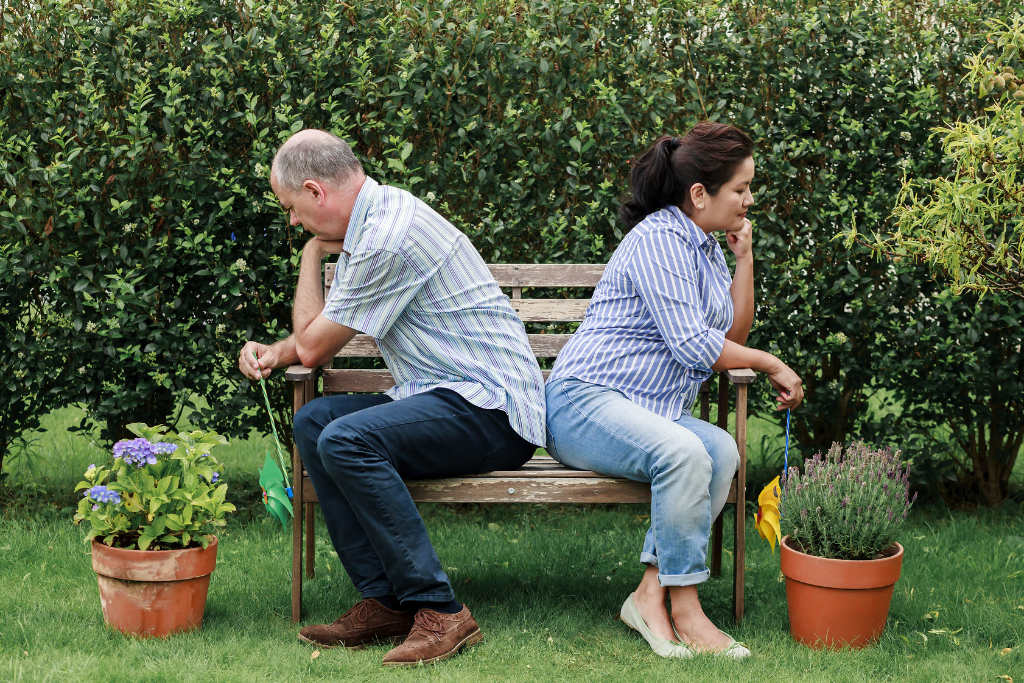
Buying a house without viewing: Risks and strategies
Wondering about how risky “buying a house without viewing” is? Well join us as we delve into all things house viewings from a-far.

Table of Contents
Buying a house without viewing - should you do it?
In the competitive housing market of 2020, the Covid-19 pandemic created a new era of home buying, where many home buyers found themselves making an offer on a property without viewing it in person.
With lockdown restrictions in place, house viewings became a challenge. Some took the bold step to buy a house sight unseen, relying on virtual tours, photos and video calls with estate agents to assess properties.
It’s important to remember that making an offer without viewing the property in person entails risks. While virtual viewing options and remote home inspections provided a way to navigate this unfamiliar territory, long-distance home buyers often had lots of questions and had to exercise due diligence to protect their investments.
Whether you are an experienced investor or a first-time home buyer, buying a house without setting foot in it can be a daunting decision that should be approached with caution and careful consideration of all available resources and information.
Usually, when you purchase a house you will go to viewings to ensure the property is up to par with your life goals and to make sure it meets your expectations. But, since the pandemic, there has been a massive increase in the amount of people buying houses without viewing them.
Buying a house without viewing it in person is a decision that should be made cautiously and with careful consideration of the circumstances. While it’s not an ideal way to purchase a property, there can be situations where it might make sense.
What does buying sight unseen mean?
When you buy a house without viewing it, this is known as buying sight unseen, or otherwise known as buying blind. Buying sight unseen is a normal strategy in the property investing world as confident investors buy properties without viewing them in order to beat rival bids.
But, when it comes to the average homeowner, buying sight unseen can come with a whole range of risks that could end up costing you further down the road.
How do you buy sight unseen?
Buying a house sight unseen is similar to buying a property traditionally except you don’t need to physically enter the property. If you purposely look to buy sight unseen, you should ensure that you create a plan at the beginning of the process.
You should clearly outline your criteria, including your budget, location preferences and what kind of property you want, having a well-defined plan will help you narrow down your options and help you liaise with the estate agent easier.
Once with an estate agent, you will need to tell them your preferences and plan, to which they should recommend some local properties. Luckily, due to the housing market’s response to the pandemic, most estate agencies ensure there are virtual tours available for most properties.
You will need to scrutinise all available virtual tours, photos and videos of the property and ensure that there are no hidden cuts within the video, as this could be a sign that the estate agent is attempting to hide issues.
Once you are happy with the property and its condition, you can then follow the usual house selling process, ensuring that there is a RICS surveyor visiting the property.
When might you consider buying a house without viewing?
If you are relocating to a new area and it’s logistically challenging to visit properties in person, buying sight-unseen might be a practical option. Being able to put forward a sight unseen offer will allow you to not miss out on homes that are moving fast within the market, which may even be your next dream property.
We would recommend that you have a trustworthy estate agent with local knowledge who can thoroughly inspect the property for you.
The estate agents should be able to provide you with detailed local information, conduct video tours and help calculate the risks associated with the property.
Furthermore, if the property offers comprehensive virtual tours, detailed photographs and you feel confident in your ability to assess the property remotely, you may be more comfortable buying without visiting in person.
When should you be cautious buying a property without viewing it?
If you are a first time buyer, we would generally recommend not buying a house without viewing it in person. Lack of experience can increase the risk and without knowing what to look out for, you may overlook certain issues within a property.
This is especially true for all homebuyers, if you are looking to buy a property in an unknown location. If you are not familiar with the local housing market, it’s a lot riskier to make a sight-unseen purchase as local market knowledge is invaluable when assessing it’s value and neighbourhood.
Even if you toured the property’s location on google maps, and came to the conclusion that it was in a safe neighbourhood with plenty of amenities, you may not know the area is prone to subsidence issues.
Visiting a property before buying can help assist you in making informed decisions about the building, especially if you have major concerns about its condition.
Risks of buying a house without viewing
Buying a house without viewing it in person entails significant risk that prospective buyers should carefully consider. The foremost concern is the unknown property condition, as it’s impossible to assess the property’s true state without a physical visit.
Misrepresentation in online photos and descriptions can also be problematic, potentially leading to unexpected issues post-purchase. The property’s location, neighbourhood dynamics and undisclosed problems may not become evident until it’s too late.
Moreover, unfamiliarity with local housing market dynamics can result in overpayment or missed opportunities, Legal and contractual risks can also add complexities to the process, while buyer’s remorse and difficulty in reselling are emotional and financial challenges associated with sight-unseen purchases.
Buying a house without viewing it in person carries several risk that could impact your financial well-being and overall satisfaction with the property:
When you don’t physically visit a property, you can’t assess its condition firsthand. This can lead to unexpected and costly surprises after the purchase, such as structural issues, water damage or subsidence that were not apparent in online photos, descriptions or disclosed by the house seller.
Photos and property descriptions provided by sellers or estate agents can be selective and may not accurately represent the property’s true condition. Without viewing the property in person, you may rely on potentially misleading information.
The location of a property is a critical factor in its value and your overall satisfaction. Without visiting the area, you might not fully understand factors like noise levels, proximity to amenities, safety, and the overall neighbourhood environment.
Sellers may not disclose all issues related to the property, such as pest problems, disputes with neighbours, or other issues that could negatively impact your experience as a homeowner.
After purchasing a property sight-unseen, you may experience buyer’s remorse if it doesn’t meet your expectations or lifestyle needs which can be emotionally and financially challenging to reverse the decision.
If you decide to sell the property in the future, you may face difficulties in marketing it to potential buyers who expect to view a property before making a purchase.
Visiting a property in person allows you to connect with it emotionally — it’s harder to gauge whether a property feels right for you without a physical visit.
Buying a house without viewing - strategies to protect yourself
Buying a house without viewing it demands a strategic approach in order to safeguard your investment. The truth of it is, only through thorough research and localised expertise will you be able to buy a house without viewing it and minimise your problems.
You should start by choosing a trusted estate agent (like us) to guide you through the virtual tour and photography of a property, insist on third party surveys and review all property disclosures available.
Some examples of strategies you could use are:
Get a pre-approved mortgage
Using a local mortgage provider to get a pre-approved mortgage for the area in which you are interested may help you when purchasing a house long distance. This is because you will be able to make more competitive offers on the property.
Utilise virtual tours
The estate agency you decide to use should be able to arrange a virtual tour of the property, which means you can see the property on your own timeline.
Send a trusted representative
If you personally cannot view the property but you know someone that can, then this person can step in and tour the property. Just make sure that you provide them with a list of things you are looking for.
Using a highly rated estate agent
You will need to find a highly rated estate agency with plenty of experience in sight unseen property transactions — like us! We have over 50 years of combined experience in the property industry and really know how to sell your house online.
We’ve made it our mission to change the way you buy and sell houses because we believe that a house sale should be three things; fast, effortless and free.
We offer you a full estate agent service but without the hassle. Whether you are buying or selling, we are here to take care of everything and work alongside you every step of the selling and buying process.
Want to kickstart your buying or selling journey?









